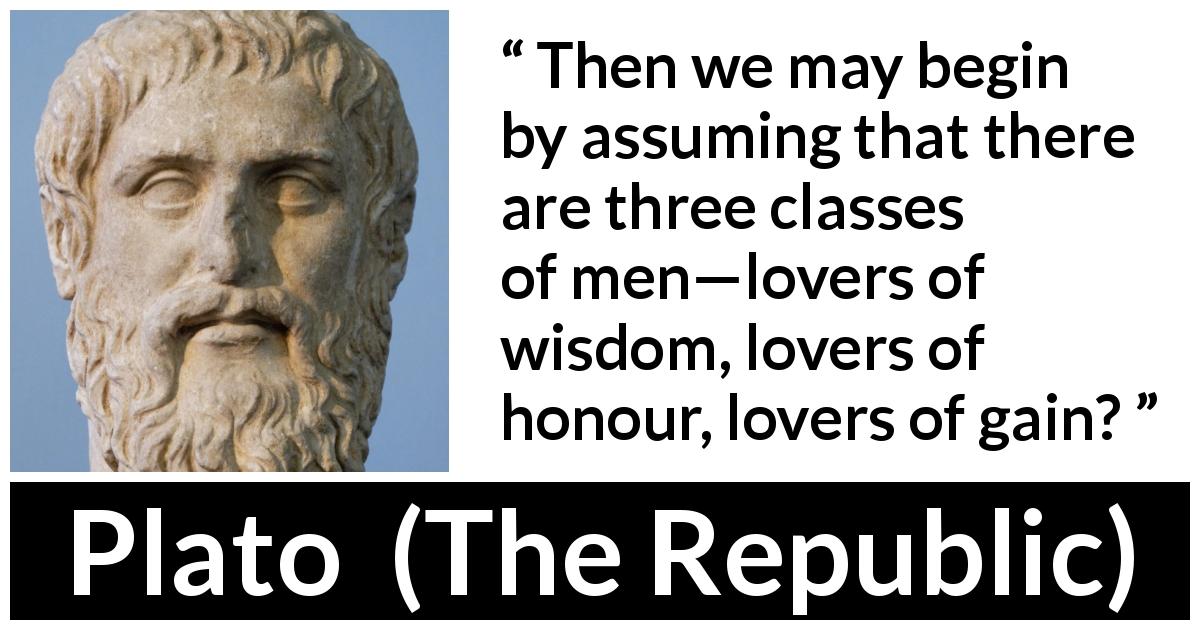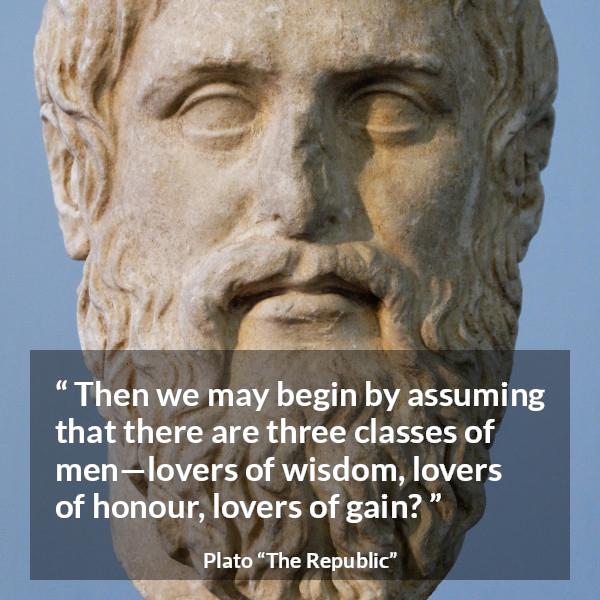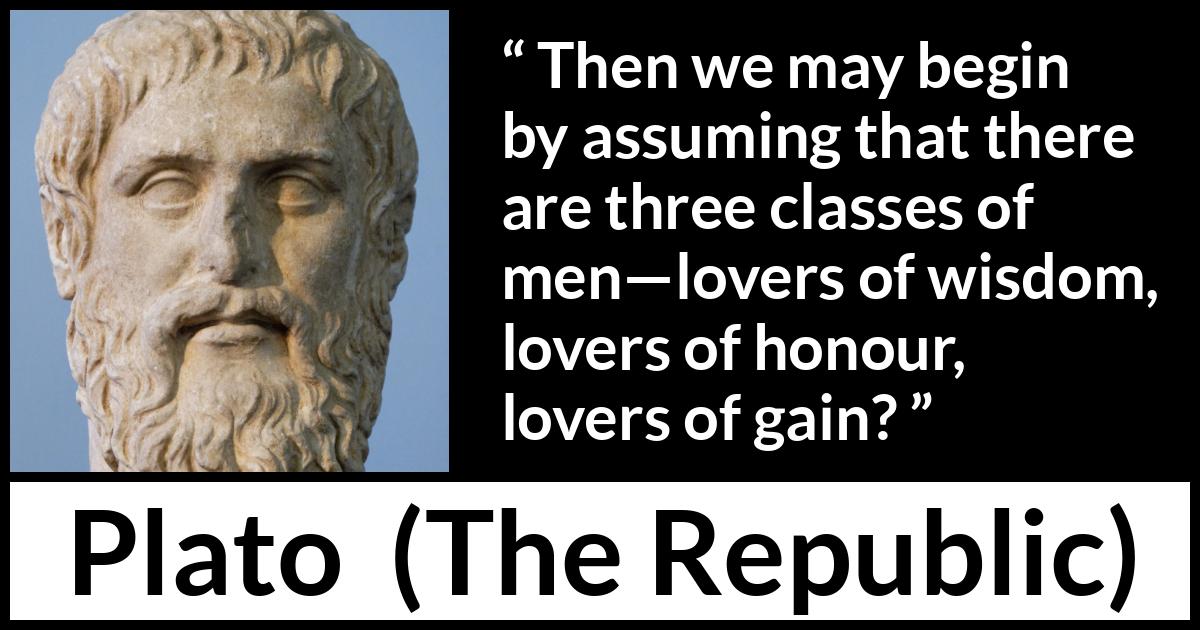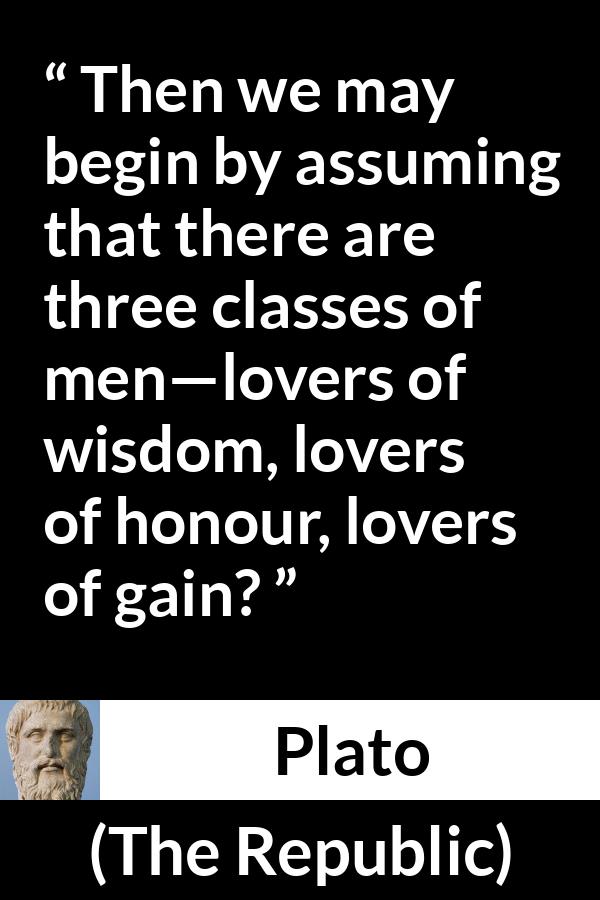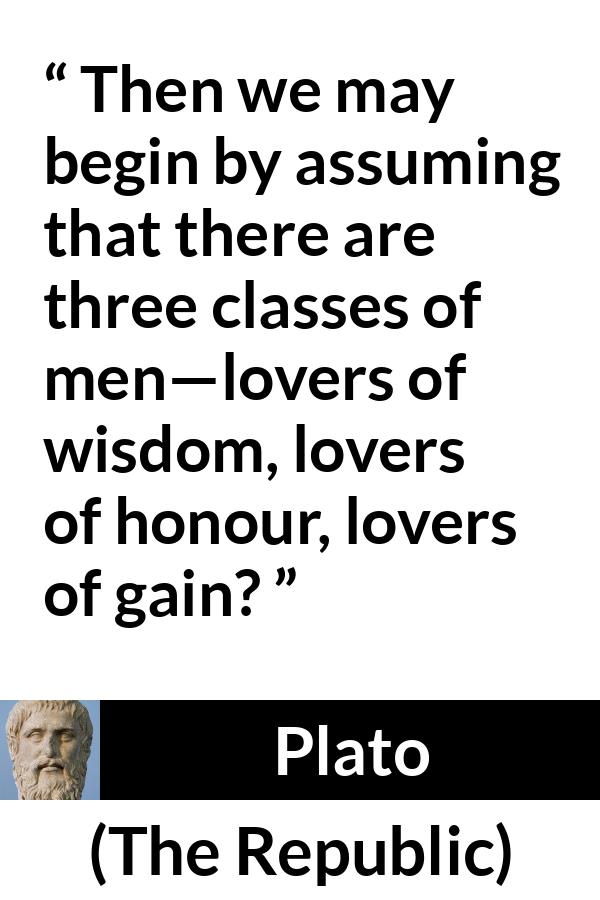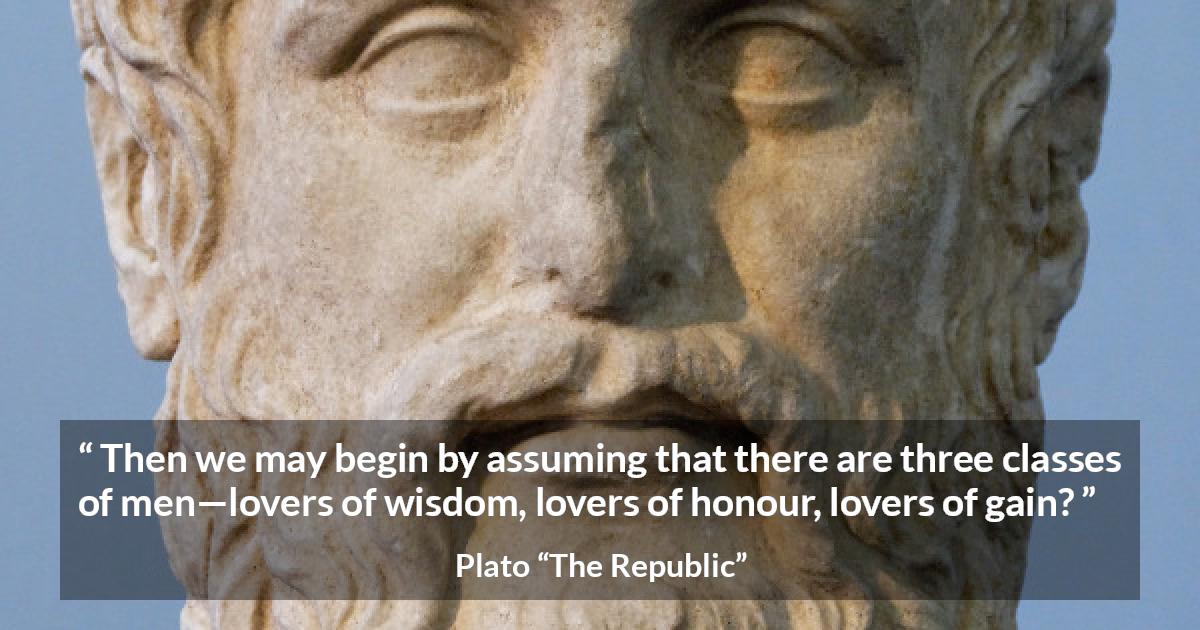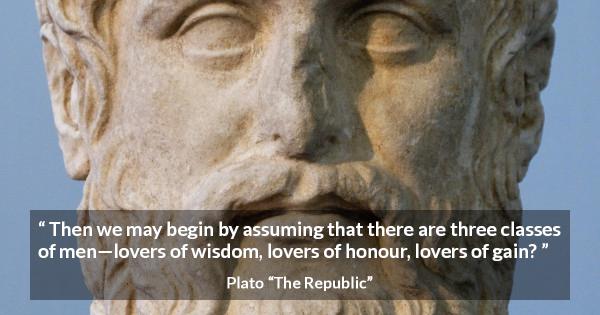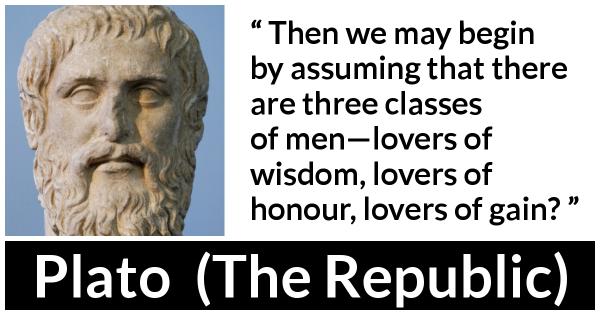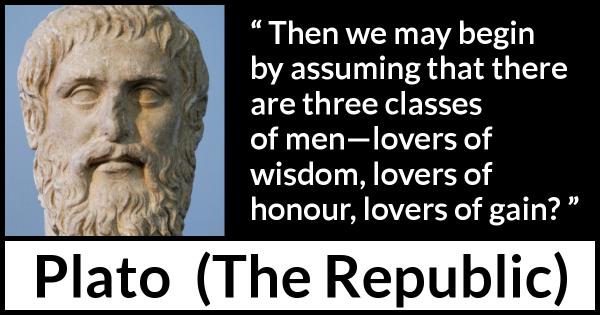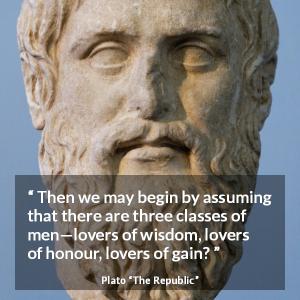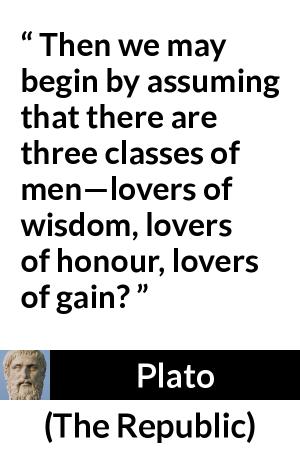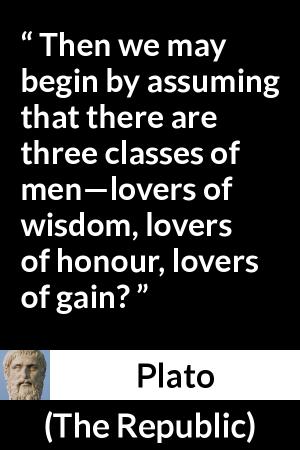“ Then we may begin by assuming that there are three classes of men—lovers of wisdom, lovers of honour, lovers of gain? ”
Plato, The Republic. copy citation
| Author | Plato |
|---|---|
| Source | The Republic |
| Topic | men wisdom honour money |
| Date | |
| Language | English |
| Reference | |
| Note | Translated by Benjamin Jowett |
| Weblink | http://www.gutenberg.org/files/1497/1497-h/1497-h.htm |
Context
“'Lover of wisdom,' 'lover of knowledge,' are titles which we may fitly apply to that part of the soul?
Certainly.
One principle prevails in the souls of one class of men, another in others, as may happen?
Yes.
Then we may begin by assuming that there are three classes of men—lovers of wisdom, lovers of honour, lovers of gain?
Exactly.
And there are three kinds of pleasure, which are their several objects?
very true.
Now, if you examine the three classes of men, and ask of them in turn which of their lives is pleasantest, each will be found praising his own and depreciating that of others: the money-maker will contrast the vanity of honour or of learning if they bring no money with the solid advantages of gold and silver?” source
Certainly.
One principle prevails in the souls of one class of men, another in others, as may happen?
Yes.
Then we may begin by assuming that there are three classes of men—lovers of wisdom, lovers of honour, lovers of gain?
Exactly.
And there are three kinds of pleasure, which are their several objects?
very true.
Now, if you examine the three classes of men, and ask of them in turn which of their lives is pleasantest, each will be found praising his own and depreciating that of others: the money-maker will contrast the vanity of honour or of learning if they bring no money with the solid advantages of gold and silver?” source
